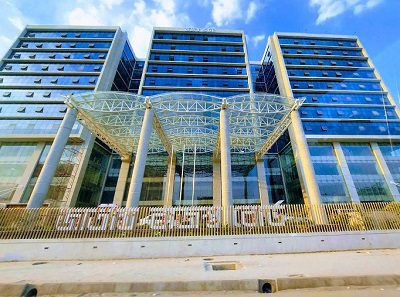Customs operations at the Chattogram Custom House—Bangladesh’s largest customs station—came to a complete standstill on Thursday as officers and employees of the National Board of Revenue (NBR) continued their pen-down strike for the second consecutive day.
The strike is part of a three-day protest organised by the NBR Reform Unity Council, a coalition representing officials from the Customs, VAT, and Income Tax departments.
Protesters are opposing a newly promulgated ordinance that restructures the tax administration by dissolving the NBR and replacing it with two separate divisions: a Revenue Policy Division and a Revenue Management Division.
Work abstention began at 10am and continued until 3pm. At the Chattogram Custom House, all customs-related activities—such as the processing of import and export taxation documents—have been suspended.
According to customs officials, around 7,000 documents, including bills of entry and export, are typically submitted each day. However, none are being processed due to the strike, severely affecting trade flow.
The strike has triggered similar disruptions across tax zones, VAT offices, and customs stations nationwide. Officials have been reporting to work but refraining from carrying out any duties as a symbolic act of protest. Traders are increasingly worried about the economic impact.
ASM Rezaul Karim Swapan, secretary of the Chattogram C&F Agents Association, highlighted the timing issue, saying Thursdays are critical for clearing shipments ahead of the weekend. Missing Thursday’s clearance window could result in significant financial losses due to delays in delivery and port handling.
The protest was sparked by the interim government’s decision, formalised in an ordinance reportedly published late on 12 May, to restructure the NBR. The ordinance allows any qualified government officer—including administrative cadre officials—to be appointed to leadership roles in the two new divisions.
NBR officers argue this move sidelines domain expertise in taxation and disregards the recommendations of the NBR Reform Committee, formed in October 2024, which included former NBR chairmen and senior officials.
Under the new framework, the Customs, Excise and VAT Appellate Tribunal, as well as the Income Tax Appellate Tribunal, will be placed under the Revenue Policy Division of the Ministry of Finance.
The government maintains that separating policy-making from revenue collection will lead to greater transparency, efficiency, and accountability. It also states that positions within the new divisions can be filled by professionals with expertise in taxation, economics, administration, legal affairs, and accounting.
Despite these assurances, NBR officials remain unconvinced. They are demanding changes to ensure that appointments prioritise professional experience in tax administration and reflect the original reform committee’s input. The strike is expected to resume on Saturday unless the government intervenes.
Meanwhile, Faruque Hassan, former president of the Bangladesh Garment Manufacturers and Exporters Association, expressed concern that the strike is negatively affecting business operations.
Speaking at a press conference in Dhaka, he acknowledged the potential of the new divisions but emphasised the need for effective implementation. He also noted that recent legal actions against businesspeople had raised alarm among international buyers, further complicating the trade environment.


